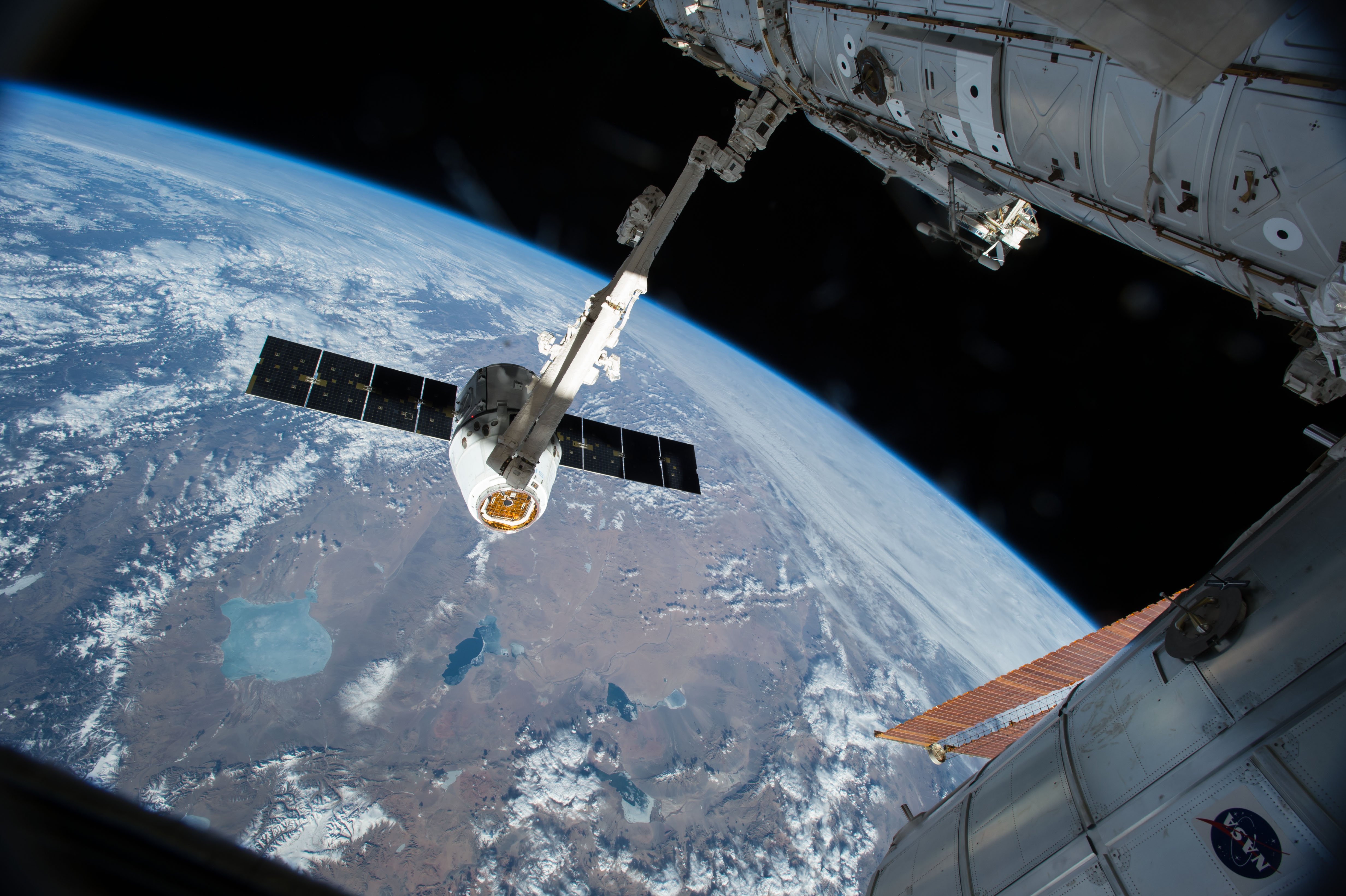The embarrassing truth about SpaceX
On the new and rather weird role private industry has come to play in a field traditionally dominated by state-run efforts


Commercial space flight just got an early Christmas present.
On Monday evening, Elon Musk's SpaceX successfully delivered an 11 satellite payload into space with a two-stage rocket. That in itself wasn't all that remarkable. What was remarkable is that, when the first stage detached, it didn't simply plunge back to Earth, its usefulness at an end. Instead, it re-fired its engines, turned around, flew back to Florida, and vertically landed itself on a platform a few kilometers from where it took off.
It was the third attempt after two previous failures. One SpaceX staffer reportedly summed up the event with colorful brevity: "Holy shit. We did it!"
The Week
Escape your echo chamber. Get the facts behind the news, plus analysis from multiple perspectives.

Sign up for The Week's Free Newsletters
From our morning news briefing to a weekly Good News Newsletter, get the best of The Week delivered directly to your inbox.
From our morning news briefing to a weekly Good News Newsletter, get the best of The Week delivered directly to your inbox.
It's technically not the first successful flight of a reusable rocket. Back in November, Blue Origin (a private space company founded by Jeff Bezos) announced it had launched and landed one as well. But the SpaceX rocket is built to go faster and deeper into space. And at $60 million apiece, SpaceX's satellite launches are already the cheapest in the burgeoning private space flight industry. A huge portion of that price tag stems from the necessity of building a new rocket for each launch. If the first stage — the bulk of the vehicle — can become routinely reusable, the costs drop considerably.
It's a moment that highlights the new and frankly rather weird role private industry has come to play in a field traditionally dominated by state-run efforts.
Many industries and private companies, particularly telecoms, have an interest in maintaining satellites in space. And along with traditional and governmental launch providers, we now have a new generation of private companies: SpaceX, Blue Origin, Orbital Sciences Corp., and more. That gives us all the makings of a functioning market: Multiple buyers and multiple sellers in a profit-making enterprise, all incentivized to compete and innovate to drive down costs and drive up value. And then, of course, there's Richard Branson's Virgin Galactic, out trying to pave the way for private space tourism.
But in terms of space exploration — manned missions, research, trips to Mars, or even eventual colonization — governments remain the biggest player by an overwhelming margin. Bloomberg reported that SpaceX already has $4.2 billion in contracts with the U.S. government to haul people and supplies to the International Space Station, while all of the launches on its manifest total $5 billion. America is paying SpaceX $2.6 billion just to handle its astronauts and eventually replace the space shuttle, and it's paying Boeing another $4.2 billion to effectively tackle the same problem.
A free daily email with the biggest news stories of the day – and the best features from TheWeek.com
Yet NASA's budgets over the last five years — $18 billion, give or take — are actually the highest they've been since the late 1960s once you adjust for inflation, and the government plans to keep spending at roughly that level. So while the space shuttle has been decommissioned, and NASA's Constellation program — aimed at building a new generation of rockets to revisit the moon — was scrapped by the Obama administration in 2010, the U.S. space program remains alive and well.
It's just mostly been contracted out to the private sector.
This is hardly the first time something like this has happened. But the whole case for government contracting work out to private businesses is an odd one. There's not much of a budget case for it. Whether the government runs a space program itself, or has Elon Musk run it instead, Uncle Sam is paying for it either way.
The basic argument for the private sector is that market competition fosters efficiency and quality in a way government structures can't, so maybe you get the same thing better for less money. But even when the government is buying a good or service that private sector entities buy as well — technology, infrastructure, etc. — it's still the final arbiter of quality. (Not to mention, the private contractor has a profit incentive to milk the government for as much as possible.) So whatever quality assurance the government is institutionally capable of enforcing on a contractor, it's capable of enforcing on itself. This goes doubly so for something like space exploration, where the government is pretty much the only buyer.
That could potentially change if space mining ever takes off. But even there, risk and cost concerns are going to drive companies to automate the process and reduce the human element as much as possible.
Another case for private contracting is you can get suppliers to compete — i.e. have SpaceX and Boeing try to solve the same problem, and then see who can do it better. But again, there's no reason the government can't have in-house agencies doing this same kind of redundant experimentation. It's just you'd have politicians screaming about cost overruns and waste in that instance.
The ideological fixation on less government spending and austerity remains the 800-pound gorilla in the room. NASA's budget may by $18 billion now, but at the height of the 1960s space race it was $43 billion in current dollars. Exploring space is an intrinsically expensive proposition. George W. Bush's proposed Mars trip and the Constellation program weren't scrapped because of deficiencies or failures. And the Space Launch System — the new government program to replace the space shuttle — isn't foundering for those reasons either.
Rather, the government just isn't willing to spend the money necessary to do this properly. Indeed, if you look at the relationship between Musk and the U.S. government, it seems like the implicit hope is that Musk (a space exploration enthusiast himself) can use his revenue from private contractors to essentially subsidize the government's contribution back up to the necessary levels. Which, you know, okay. But that's a purely political choice. In hard economic terms, the government has plenty of room to efficiently raise hundreds of billions in new tax revenue. Furthermore, it has plenty of fiscal and monetary room to deficit spend, which would be good anyway: The economy needs the boost.
Which isn't to say it's necessarily worse to be doing this through the private sector. But it's not necessarily better either.
The impulse seems to be mainly driven by raw cultural aesthetics: a worship of individuals like Musk and Bezos as nimble innovators disrupting sclerotic government. All of which ignores both the dark side of unbound private sector visionaries and the practical reality that the government could attract exciting and innovative talent if, again, it was just willing to pay for it.
The biggest reason human beings have to go into space remains frivolous and impractical in the best and most glorious way: Because it's there.
Shoving that reasoning into a private sector framework is always going to be an odd fit.
Jeff Spross was the economics and business correspondent at TheWeek.com. He was previously a reporter at ThinkProgress.
-
 Environment breakthroughs of 2025
Environment breakthroughs of 2025In Depth Progress was made this year on carbon dioxide tracking, food waste upcycling, sodium batteries, microplastic monitoring and green concrete
-
 The biggest astronomy stories of 2025
The biggest astronomy stories of 2025In the spotlight From moons, to comets, to pop stars in orbit
-
 The 8 best comedy movies of 2025
The 8 best comedy movies of 2025the week recommends Filmmakers find laughs in both familiar set-ups and hopeless places
-
 The pros and cons of noncompete agreements
The pros and cons of noncompete agreementsThe Explainer The FTC wants to ban companies from binding their employees with noncompete agreements. Who would this benefit, and who would it hurt?
-
 What experts are saying about the economy's surprise contraction
What experts are saying about the economy's surprise contractionThe Explainer The sharpest opinions on the debate from around the web
-
 The death of cities was greatly exaggerated
The death of cities was greatly exaggeratedThe Explainer Why the pandemic predictions about urban flight were wrong
-
 The housing crisis is here
The housing crisis is hereThe Explainer As the pandemic takes its toll, renters face eviction even as buyers are bidding higher
-
 How to be an ally to marginalized coworkers
How to be an ally to marginalized coworkersThe Explainer Show up for your colleagues by showing that you see them and their struggles
-
 What the stock market knows
What the stock market knowsThe Explainer Publicly traded companies are going to wallop small businesses
-
 Can the government save small businesses?
Can the government save small businesses?The Explainer Many are fighting for a fair share of the coronavirus rescue package
-
 How the oil crash could turn into a much bigger economic shock
How the oil crash could turn into a much bigger economic shockThe Explainer This could be a huge problem for the entire economy
